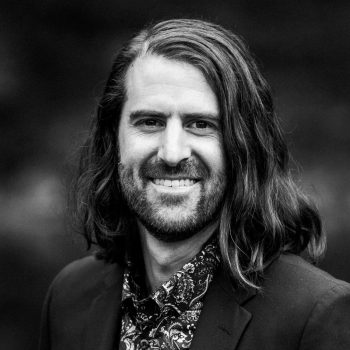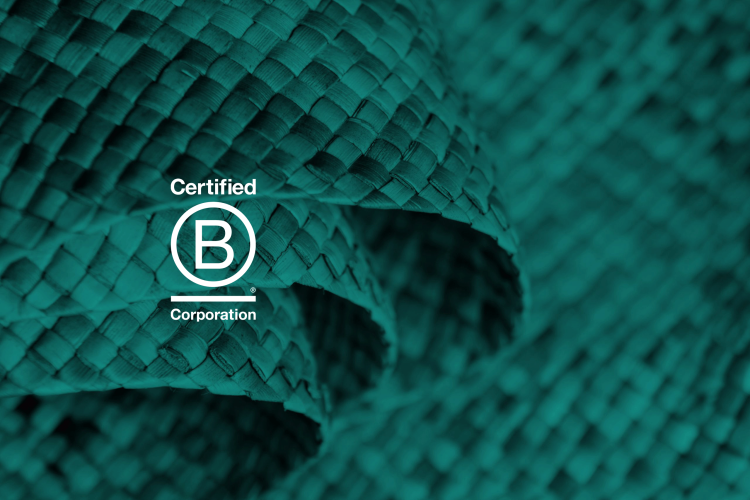
June 30th, 2024
We’re a B Corp!
Why we’re happy to be one, and why we almost abandoned the process in protest.
There’s a growing global movement of businesses wanting to normalise the doing of more good than harm. Leadership Lab has, for a long time, self-identified as being a purpose-led social enterprise. We believe in, are deeply committed to, and actively pursue a thriving and equitable society. We’re shameless and open about our commitment to a better world and choose to work exclusively with others trying to move needles worth moving. We’re also a for-profit business, and that’s ok. Social enterprise pursues profit in alignment with a broader purpose, and doesn’t accept outdated ideas of simply ‘making a profit’ to then ‘give back’.
This growing global movement is increasingly starting to join together, with one connection point being the BCorp movement. You can learn more about the BCorp movement from them here, but in brief, it is a global movement for an “inclusive, equitable, and regenerative economy”. ‘Being a BCorp’ means you have completed an all-inclusive assessment framework for businesses that require:
- Legal commitments,
- Transparency, and
- Demonstration of high levels of pro-social and pro-environmental performance.
At the time of our assessment, the average company scored 50 points out of the minimum 80 required to reach the certification, meaning that some never make it and others take several years to get there. Our final score at certification was 122, which is actually quite good. Yay!
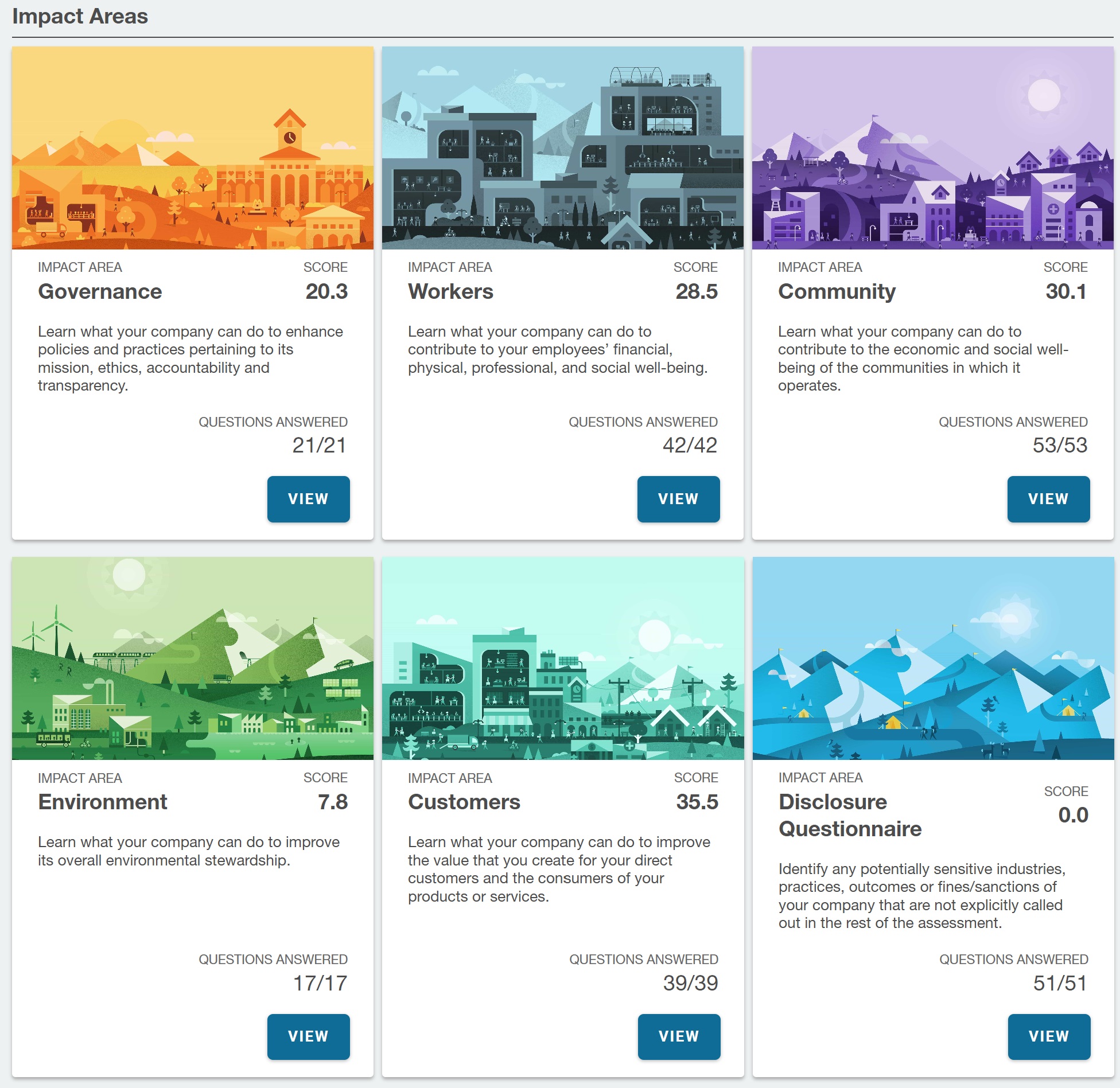
Image caption (left): A breakdown of our final BCorp Score, arranged into the current framework that is due to be replaced in 2025.
We’re very proud to have joined the BCorp movement. We were pleased to benchmark ourselves against our global peers and are thankful for the stones we were made to upturn throughout the incredibly rigorous assessment process. Working through it helped us do some things that we had been wanting to do, which we now do better than we would have otherwise. I would be remiss not to also shout out to Tim and the team at Grow Good for their support and guidance throughout the process!
However, we also almost pulled out halfway through the year-long assessment process because of some fairly significant objections to the way that the BCorp assessment is built, its blindspots, and how some of the ways that we were required to answer questions completely clashed with our kaupapa and values. If a tool designed for good also hurts the people it’s trying to serve, it’s not a tool we want to use or endorse.
At the time, our draft score was a whopping 178 out of a possible maximum of 200 – which would have left us with, literally, one of the highest BCorp scores in the world. Many of our points came from what are called “Impact Business Models” – sections of points that open up depending on specific gateway questions about how the company operates. Most BCorps get access to one, maybe two, of these Impact Business Model sections. At this time, answering honestly as a first pass without overthinking it, we had six. “Wow” we thought, “that’s kinda cool”. However, once we got more into the details of the questions and the required verification data, we became less enthusiastic.
There are many questions whose framing is unhelpful and a little backwards. For example, sections on people and workforce regularly used terms like ‘chronically underemployed populations’ and gave vague, far-reaching definitions that can be easily met and lean on deficit-based framings (instead of the asset-based framings commonly adopted to advance equity). Our Leadership Lab team is very diverse, we intentionally reflect the equitable society we envision, and we have many team members who identify with populations experiencing discrimination. That’s worth points, ok cool. And then the verification processes ask for spreadsheets of data that are unhelpful (and sometimes illegal) to gather and are frankly a little weird and uncomfortable to ask, let alone document. Our internal discussion was often, “we can see what they’re trying to do and ask here, but that’s a gross way to do it, and we just can’t answer that without making an unnecessary mess”.
Another major objection is what we see as a large blindspot in the assessment and its eligibility questions. Aotearoa is, like much of the Western and Eastern world, a place with rich indigenous histories, cultures, and languages that have been systematically oppressed and actively attacked for far too long. Decolonisation and reindigenisation are not that ‘out there’ when talking about businesses trying to do good in the world, yet BCorp doesn’t touch them. There are no references to decolonisation and one single reference to indigeneity that I could find (and I looked). That one reference was in the expanded explanation of an eligibility question, in words to the effect of: “Are you currently, or have you ever undertaken everyday work that has been protested by [minority groups including but not limited to] Indigenous or First Nations Peoples?”
Answering the direct question is a disturbingly low bar: No, our business operations have not been protested against by indigenous peoples. I can’t say the same about our major societal structures, government, and laws… many of which a great number of people, including us, are working to change.
Does indigeneity have no place in “the global movement for an inclusive, equitable, and regenerative economy” except to protest things that are wrong? Does actively supporting reindigenisation not contribute to these exact stated objectives of BCorp? We object.
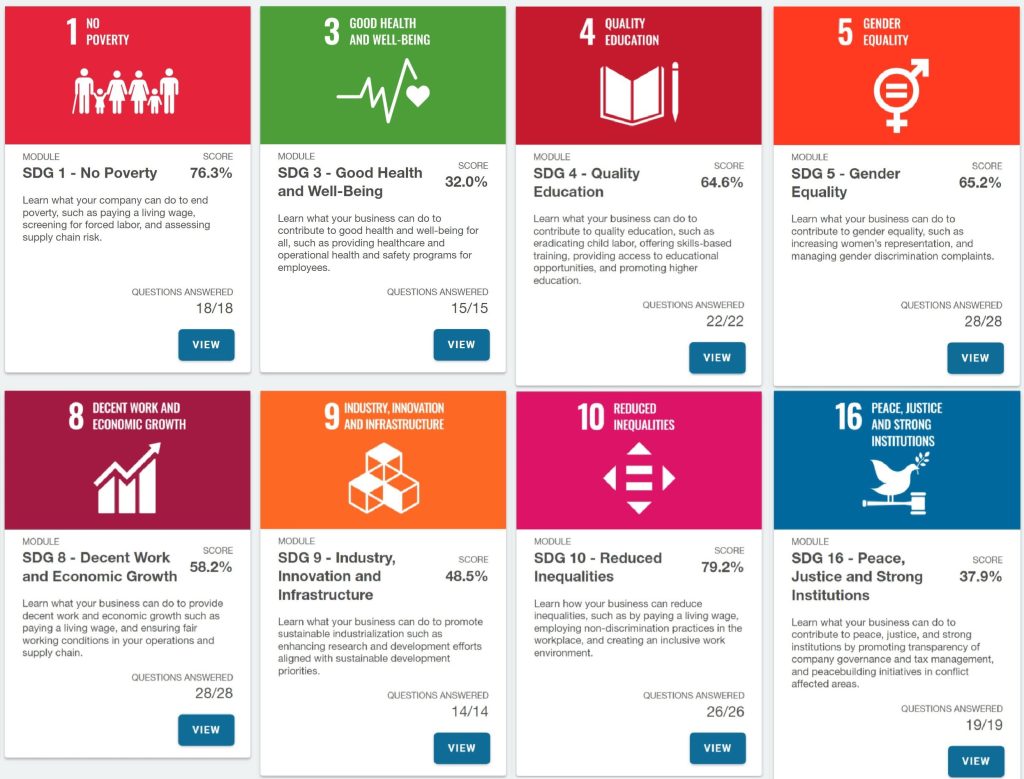
Image caption: The BCorp framework aligns in a few ways with the United Nations Sustainable Development goals, which we were assessed against also.
Working over many months through objections like these, we seriously considered abandoning the process. But our mission is fostering collective responses to complex issues and we always advocate reaching across the divide rather than throwing rocks or excluding people. So we instead sought to provide direct feedback on the process and framework, with specific examples from our objections.
Attempting to provide this feedback was when we realised that the overseeing body, B Lab, had already recognised they had a problem and were taking active steps to improve the assessment and the whole framework sitting behind it. They have been undertaking a top-down review and rebuild of the BCorp assessment based on input and feedback, including a lot that aligned with what we had planned to say. They had put out a draft of a new framework, accepted feedback, and then delayed their own process again to extend timing when they realised, through consultation, that they had still missed the mark.
This ongoing commitment to learning and ‘doing better once you know better’ has kept us at the table, and that’s why we’re proudly announcing that we are a BCorp. Whilst we haven’t yet managed to provide our direct feedback (because I missed the deadline), we are pleased to see the latest draft standards have a substantial reorientation to include a significant emphasis on equity for all, a whole section on Justice, Equity, Diversity & Inclusion, and quite a few inclusions of the rights and contributions of indigenous and first nations peoples (we don’t think we’ve found them all yet).
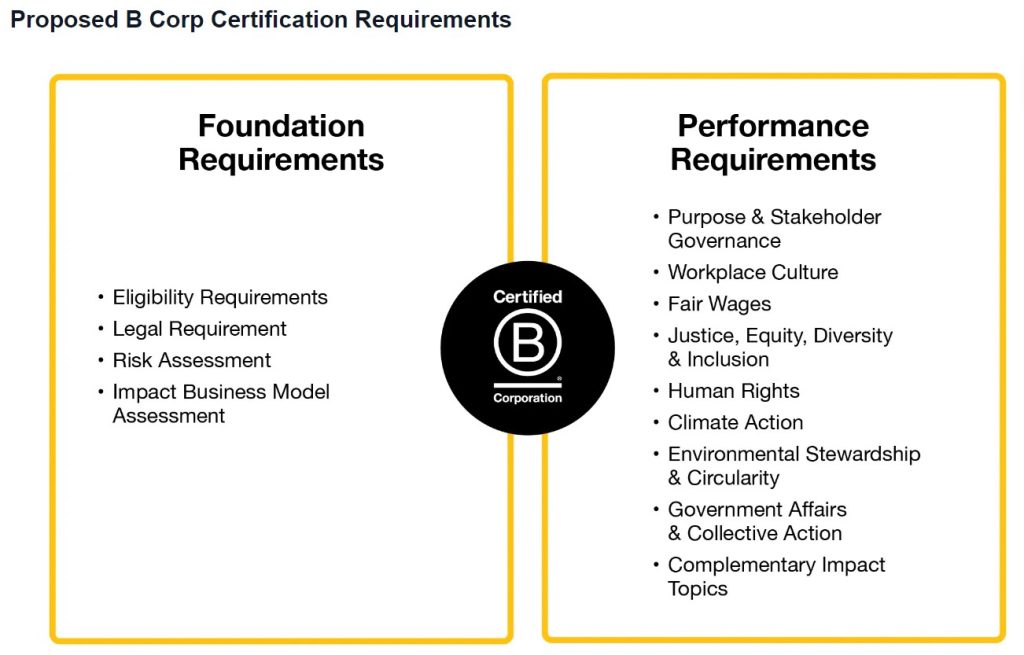
Image caption: The proposed (new) BCorp Standards framework includes Foundational Requirements core to the business identity and operations, as well as minimum Performance Requirements across a wide range of factors. Image from: https://standards.
Sometimes, progress is more important than perfection. In the end we decided to compromise that which would not compromise our values, sacrificing a bunch of points that we wrote off as blood diamonds. We finished with (a still whopping) four Impact Business Models and 2 ½ times the average starting points. We are excited to be part of the growing global movement and to contribute to the ongoing global conversation about the role of business in our thriving, equitable future.
Jason Pemberton is a Senior Consultant with Leadership Lab, based in Denver, Colorado. He led the Leadership Lab team undertaking the BCorp Assessment process in 2022-23 and continues to work with our core Strategy Team to iterate and implement the lessons we have learned from the process.

June 30th, 2024
We’re a B Corp!
Why we’re happy to be one, and why we almost abandoned the process in protest.
There’s a growing global movement of businesses wanting to normalise the doing of more good than harm. Leadership Lab has, for a long time, self-identified as being a purpose-led social enterprise. We believe in, are deeply committed to, and actively pursue a thriving and equitable society. We’re shameless and open about our commitment to a better world and choose to work exclusively with others trying to move needles worth moving. We’re also a for-profit business, and that’s ok. Social enterprise pursues profit in alignment with a broader purpose, and doesn’t accept outdated ideas of simply ‘making a profit’ to then ‘give back’.
This growing global movement is increasingly starting to join together, with one connection point being the BCorp movement. You can learn more about the BCorp movement from them here, but in brief, it is a global movement for an “inclusive, equitable, and regenerative economy”. ‘Being a BCorp’ means you have completed an all-inclusive assessment framework for businesses that require:
- Legal commitments,
- Transparency, and
- Demonstration of high levels of pro-social and pro-environmental performance.
At the time of our assessment, the average company scored 50 points out of the minimum 80 required to reach the certification, meaning that some never make it and others take several years to get there. Our final score at certification was 122, which is actually quite good. Yay!

Image caption (left): A breakdown of our final BCorp Score, arranged into the current framework that is due to be replaced in 2025.
We’re very proud to have joined the BCorp movement. We were pleased to benchmark ourselves against our global peers and are thankful for the stones we were made to upturn throughout the incredibly rigorous assessment process. Working through it helped us do some things that we had been wanting to do, which we now do better than we would have otherwise. I would be remiss not to also shout out to Tim and the team at Grow Good for their support and guidance throughout the process!
However, we also almost pulled out halfway through the year-long assessment process because of some fairly significant objections to the way that the BCorp assessment is built, its blindspots, and how some of the ways that we were required to answer questions completely clashed with our kaupapa and values. If a tool designed for good also hurts the people it’s trying to serve, it’s not a tool we want to use or endorse.
At the time, our draft score was a whopping 178 out of a possible maximum of 200 – which would have left us with, literally, one of the highest BCorp scores in the world. Many of our points came from what are called “Impact Business Models” – sections of points that open up depending on specific gateway questions about how the company operates. Most BCorps get access to one, maybe two, of these Impact Business Model sections. At this time, answering honestly as a first pass without overthinking it, we had six. “Wow” we thought, “that’s kinda cool”. However, once we got more into the details of the questions and the required verification data, we became less enthusiastic.
There are many questions whose framing is unhelpful and a little backwards. For example, sections on people and workforce regularly used terms like ‘chronically underemployed populations’ and gave vague, far-reaching definitions that can be easily met and lean on deficit-based framings (instead of the asset-based framings commonly adopted to advance equity). Our Leadership Lab team is very diverse, we intentionally reflect the equitable society we envision, and we have many team members who identify with populations experiencing discrimination. That’s worth points, ok cool. And then the verification processes ask for spreadsheets of data that are unhelpful (and sometimes illegal) to gather and are frankly a little weird and uncomfortable to ask, let alone document. Our internal discussion was often, “we can see what they’re trying to do and ask here, but that’s a gross way to do it, and we just can’t answer that without making an unnecessary mess”.
Another major objection is what we see as a large blindspot in the assessment and its eligibility questions. Aotearoa is, like much of the Western and Eastern world, a place with rich indigenous histories, cultures, and languages that have been systematically oppressed and actively attacked for far too long. Decolonisation and reindigenisation are not that ‘out there’ when talking about businesses trying to do good in the world, yet BCorp doesn’t touch them. There are no references to decolonisation and one single reference to indigeneity that I could find (and I looked). That one reference was in the expanded explanation of an eligibility question, in words to the effect of: “Are you currently, or have you ever undertaken everyday work that has been protested by [minority groups including but not limited to] Indigenous or First Nations Peoples?”
Answering the direct question is a disturbingly low bar: No, our business operations have not been protested against by indigenous peoples. I can’t say the same about our major societal structures, government, and laws… many of which a great number of people, including us, are working to change.
Does indigeneity have no place in “the global movement for an inclusive, equitable, and regenerative economy” except to protest things that are wrong? Does actively supporting reindigenisation not contribute to these exact stated objectives of BCorp? We object.

Image caption: The BCorp framework aligns in a few ways with the United Nations Sustainable Development goals, which we were assessed against also.
Working over many months through objections like these, we seriously considered abandoning the process. But our mission is fostering collective responses to complex issues and we always advocate reaching across the divide rather than throwing rocks or excluding people. So we instead sought to provide direct feedback on the process and framework, with specific examples from our objections.
Attempting to provide this feedback was when we realised that the overseeing body, B Lab, had already recognised they had a problem and were taking active steps to improve the assessment and the whole framework sitting behind it. They have been undertaking a top-down review and rebuild of the BCorp assessment based on input and feedback, including a lot that aligned with what we had planned to say. They had put out a draft of a new framework, accepted feedback, and then delayed their own process again to extend timing when they realised, through consultation, that they had still missed the mark.
This ongoing commitment to learning and ‘doing better once you know better’ has kept us at the table, and that’s why we’re proudly announcing that we are a BCorp. Whilst we haven’t yet managed to provide our direct feedback (because I missed the deadline), we are pleased to see the latest draft standards have a substantial reorientation to include a significant emphasis on equity for all, a whole section on Justice, Equity, Diversity & Inclusion, and quite a few inclusions of the rights and contributions of indigenous and first nations peoples (we don’t think we’ve found them all yet).

Image caption: The proposed (new) BCorp Standards framework includes Foundational Requirements core to the business identity and operations, as well as minimum Performance Requirements across a wide range of factors. Image from: https://standards.
Sometimes, progress is more important than perfection. In the end we decided to compromise that which would not compromise our values, sacrificing a bunch of points that we wrote off as blood diamonds. We finished with (a still whopping) four Impact Business Models and 2 ½ times the average starting points. We are excited to be part of the growing global movement and to contribute to the ongoing global conversation about the role of business in our thriving, equitable future.
Jason Pemberton is a Senior Consultant with Leadership Lab, based in Denver, Colorado. He led the Leadership Lab team undertaking the BCorp Assessment process in 2022-23 and continues to work with our core Strategy Team to iterate and implement the lessons we have learned from the process.


